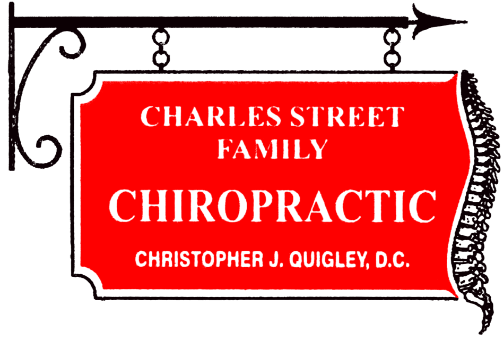Kyphosis Treatment in Boston
 You know that feeling when you catch yourself hunched over your phone or computer, and suddenly, your back feels stiff? Now imagine that becoming a permanent posture issue. That’s kyphosis. It’s a condition where the spine curves forward more than it should, making you look hunched over. While some curvature in the upper back is normal, when it becomes excessive, it can cause pain, stiffness, and even breathing problems. But you don’t have to live with it.
You know that feeling when you catch yourself hunched over your phone or computer, and suddenly, your back feels stiff? Now imagine that becoming a permanent posture issue. That’s kyphosis. It’s a condition where the spine curves forward more than it should, making you look hunched over. While some curvature in the upper back is normal, when it becomes excessive, it can cause pain, stiffness, and even breathing problems. But you don’t have to live with it.
What Is Kyphosis?
Kyphosis is a condition where the upper back or neck curves forward more than usual. In the upper back, it’s called thoracic kyphosis, and in the neck, it’s cervical kyphosis. It can be caused by poor posture over time or problems with the spine’s structure. Mild cases might not be noticeable, but severe kyphosis can lead to mobility problems and ongoing pain. Catching it early is important to avoid future complications. Watch for these Kyphosis symptoms:
- A visible hunch in the upper back
- Back or neck pain, especially after long periods of sitting or standing
- Stiffness or reduced flexibility in the spine
- Fatigue, since your muscles are working overtime to support your posture
- In severe cases, breathing issues due to spinal pressure on the lungs

What Are the Different Types of Kyphosis
Kyphosis comes in different forms, depending on what’s causing the spine to curve more than it should. Sometimes, it’s just a bad habit built up over time, and other times, it’s something structural or even present at birth. The severity can vary, and so can the treatment options.
- Postural Kyphosis is the most common and often the easiest to fix. It results from years of slouching, hunching over a desk, or constantly looking down at a phone. The good news? Straightening up, strengthening your core, and being mindful of your posture can usually reverse it.
- Scheuermann’s Kyphosis: Unlike postural kyphosis, this one isn’t just about habits—it’s structural. It happens when the vertebrae don’t grow evenly during adolescence, forming a wedge shape instead of a rectangle. That leads to a more pronounced, rigid curve that doesn’t straighten out with posture correction alone.
- Congenital Kyphosis: Some people are born with a spine that didn’t develop properly in the womb. This type tends to get worse as a child grows and often requires medical intervention, sometimes even surgery, to prevent serious complications.
- Degenerative Kyphosis: This one creep up with age. Over time, conditions like arthritis, osteoporosis, and disc degeneration weaken the spine, causing it to collapse forward. It’s more common in older adults and can lead to pain, stiffness, and mobility issues.
- Traumatic Kyphosis: A spinal fracture or injury can permanently change the shape of the vertebrae, leading to an abnormal curve. Depending on the severity, treatment might involve bracing, physical therapy, or even surgery in extreme cases.
- Neuromuscular Kyphosis: This type occurs in people with conditions like cerebral palsy or muscular dystrophy, where muscle weakness makes it difficult for the spine to stay properly aligned. Since the muscles can’t provide enough support, the spine starts to curve forward.
How to Treat Kyphosis (Without Surgery)
The good news? Most cases of kyphosis can be treated without surgery. At Charles Street Family Chiropractic, we focus on non-invasive, practical solutions that correct the root cause of the problem. Here’s what that looks like:
- Chiropractic Adjustments: Realigning the spine is key. Our chiropractic care goes beyond quick fixes—we focus on long-term correction, helping you retrain your posture and ease spinal tension.
- Posture Training: If poor posture is the main issue, we’ll guide you through targeted posture correction exercises and ergonomic adjustments to keep your spine aligned throughout the day.
- Strength & Mobility Exercises: A strong core and back muscles can do wonders for spinal support. We’ll help you build strength in the right areas to naturally straighten your posture.
- Bracing (for Younger Patients): A back brace can sometimes help slow progression in growing teens with Scheuermann’s kyphosis.
- Lifestyle & Nutrition Guidance: Your bones need the right nutrients to stay strong. We’ll help you make the right adjustments to keep your spine healthy over time.
In rare, severe cases where kyphosis is extreme and causes significant health issues, kyphosis surgery may be needed, but our goal is to help you avoid that whenever possible.
Why Choose Charles Street Family Chiropractic?
We take the time to understand your unique needs and develop a treatment plan that addresses the underlying causes of your kyphosis. Our commitment to correcting the causes of problems, rather than just managing symptoms, sets us apart from other chiropractic practices.
Time to Straighten Things Out
If you’ve noticed kyphosis symptoms, don’t ignore them. The sooner you take action, the easier it is to correct. If you’re dealing with back pain, posture issues, or a spinal condition, we can help. Book an appointment today at Charles Street Family Chiropractic and take the first step toward healthier living with less pain.

